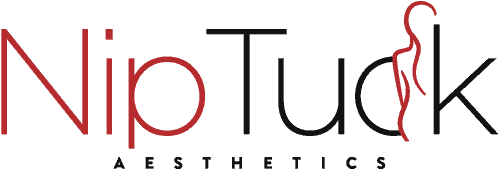Post-breast augmentation itching typically persists for 2 to 4 weeks, with onset commonly occurring around the seventh day following surgery. But why does this post-breast augmentation itching occur? This temporary discomfort results from the body’s natural healing processes, including inflammation, nerve regeneration, and histamine release.
Individual factors, such as skin sensitivity and surgical technique, can influence the duration and intensity of itching. While mild itching is normal, persistent symptoms beyond 4 weeks may warrant consultation with a surgeon. Management strategies include antihistamines, moisturizers, and cool compresses.
Vigilant monitoring of incision sites and open communication with healthcare providers are essential for ideal recovery outcomes. Further exploration reveals additional insights into long-term considerations and potential complications.
Typical Duration of Post-Surgery Itching
Most patients experience itching for about 2 to 4 weeks after breast augmentation surgery, typically starting around the seventh day post-op.
This itchiness is a common side effect of the healing process and is generally considered a normal part of recovery. As healthcare professionals, we’ve observed that the duration and intensity of this sensation can vary among individuals, depending on factors such as:
- Skin type and sensitivity
- Surgical technique employed
The itching sensation is primarily attributed to:
- Inflammation: A natural response to surgical trauma
- Skin stretching: As the breast tissue accommodates the implants
- Nerve regeneration: As damaged nerve endings begin to heal
It’s important to note that while some degree of itchiness is expected, persistent or severe itching beyond the typical 2-4 week period may indicate complications.
We advise patients to monitor their symptoms closely and report any concerns to their surgeon.
Managing post-operative itching is a significant aspect of breast augmentation aftercare, and we’re committed to guiding our patients through this phase of their recovery to guarantee the best results and comfort.
Causes of Breast Augmentation Itchiness
While we’ve discussed the typical duration of post-surgery itching, it’s important to understand the specific causes behind this common symptom after breast augmentation. Several factors contribute to the sensation of itchiness during the recovery process:
- Skin Sensitivity and Irritation:
- Surgical adhesives, dressings, and compression garments can cause skin sensitivity.
- These materials may irritate the delicate tissue surrounding the surgical site.
- Inflammation and Swelling:
- The body’s natural healing response leads to inflammation and swelling.
- This process can result in dryness and itchiness of the affected area.
- Nerve Regeneration:
- As nerves regenerate following surgery, patients may experience itching sensations.
- This is a normal part of the healing process as the body adjusts to changes in tissue.
- Histamine Release:
- The release of histamines during healing can provoke itching.
- This biochemical response is part of the body’s natural recovery mechanism.
- Allergic Reactions:
- Some patients may experience allergic reactions to materials used during surgery.
- Bandages, topical agents, or other surgical materials can potentially cause itching.
Understanding these causes can help us better serve our patients by providing appropriate care and guidance during their recovery journey.
Factors Influencing Itching Duration
Several key factors can greatly influence how long a patient experiences itching after breast augmentation surgery. We’ve identified multiple variables that contribute to the duration of post-operative itchiness:
- Individual Healing Response:
- Skin sensitivity
- Inflammation and swelling in the first few weeks
- Rate of nerve fiber regeneration
- Surgical Factors:
- Materials used during the procedure
- Medications administered
- Presence of adhesives or dressings
- Post-operative Care:
- Management of dry skin
- Monitoring for allergic reactions
The typical timeline for itchiness after breast augmentation spans from 2 to 4 weeks, commencing around the seventh day post-surgery. However, this duration can be prolonged or shortened based on the aforementioned factors.
Inflammation and swelling, particularly prevalent in the immediate post-operative period, can exacerbate itching sensations. Additionally, the regeneration of nerve fibers during the healing process may cause itchiness as the body works to restore normal sensation.
It’s essential for patients to communicate any persistent or severe itching to their healthcare providers, as this may indicate complications such as allergic reactions or infections. Proper post-operative care and adherence to prescribed protocols can meaningfully impact the duration and intensity of itching experienced during recovery.
Managing Persistent Itching Symptoms
For patients experiencing persistent itching beyond the typical 2-4 week recovery period, it’s important to explore effective management strategies to alleviate discomfort and guarantee proper healing. We recommend the following approaches to address prolonged itching sensations:
- Consult Your Surgeon: Schedule a follow-up appointment to discuss persistent symptoms and rule out potential complications.
- Over-the-Counter Antihistamines: With your surgeon’s approval, these medications can provide relief from itching. However, it’s vital to follow dosage instructions carefully.
- Moisturization: Apply hypoallergenic, surgeon-approved moisturizers to combat dryness and reduce irritation.
- Monitor for Infection: Be vigilant for signs of infection, such as increased redness, swelling, or discharge. Report any concerning symptoms to your healthcare provider immediately.
- Gentle Massage: When cleared by your surgeon, gentle massage of the surrounding area may help improve circulation and reduce itching.
It’s essential to remember that while these strategies can help manage persistent itching, they shouldn’t replace professional medical advice.
If symptoms persist or worsen, we strongly advise seeking immediate medical attention to mitigate any risk of infection or other complications.
When to Consult Your Surgeon
Recognizing when to consult your surgeon is vital for guaranteeing a smooth recovery after breast augmentation. We recommend seeking professional advice if you experience persistent itchy skin or discomfort that extends beyond the initial post-surgery period.
Here are key situations that warrant immediate consultation:
- Prolonged Itching: If itching persists for more than a week post-surgery, it’s important to consult your surgeon to rule out potential complications or infections.
- Accompanying Symptoms: Immediate medical attention is necessary if the itching is accompanied by:
- Increased redness or warmth at the surgical site
- Discharge from the incision area
- Severe pain or unusual swelling
- Changes in breast shape
It’s important to maintain regular follow-up appointments with your surgeon to monitor healing progress and address any unusual symptoms. These check-ups provide an opportunity to discuss any concerns, including persistent itching, and guarantee that your recovery is proceeding as expected.
Long-Term Itching Considerations
We’ll now explore five key considerations for patients experiencing long-term itching after breast augmentation.
- Nerve Regeneration
- Prolonged itching may be indicative of nerve regeneration following surgical disruption.
- This process can persist for weeks to months, and in some cases, years.
- Patients should understand that this sensation is often a sign of healing.
- Scar Tissue Formation
- As the body heals, scar tissue development can contribute to ongoing itchiness.
- Collagen repair processes play a significant role in this sensation.
- Monitoring the incision site for changes is imperative.
- Infection Risk
- While uncommon, persistent itching could signal an infection.
- Patients must remain vigilant for unusual symptoms or changes in the surgical area.
- Prompt consultation with a plastic surgeon is essential if concerns arise.
- Individual Variability
- Recovery experiences differ among patients.
- Factors such as skin type, surgical technique, and overall health can influence itching duration.
- Understanding personal healing patterns is important for managing expectations.
- Communication with Healthcare Providers
- Regular follow-ups with the surgical team are crucial for addressing ongoing itching concerns.
- Open dialogue allows for personalized management strategies and promotes ideal recovery outcomes.
Schedule Your Free Consultation
It’s essential to remember that while itching is a common post-operative occurrence, prolonged or severe discomfort should be addressed promptly. By understanding the nuances of this recovery aspect, patients can navigate their healing process more effectively and confidently.
Are ready to take the next step in your breast augmentation journey?
Contact Nip Tuck Aesthetics in Miami, FL today to schedule your free consultation. Our experienced team is here to answer all your questions and address any concerns you may have about the procedure and recovery process.
Don’t wait – call us now at (305) 264-5962 to book your appointment and start your transformation!



